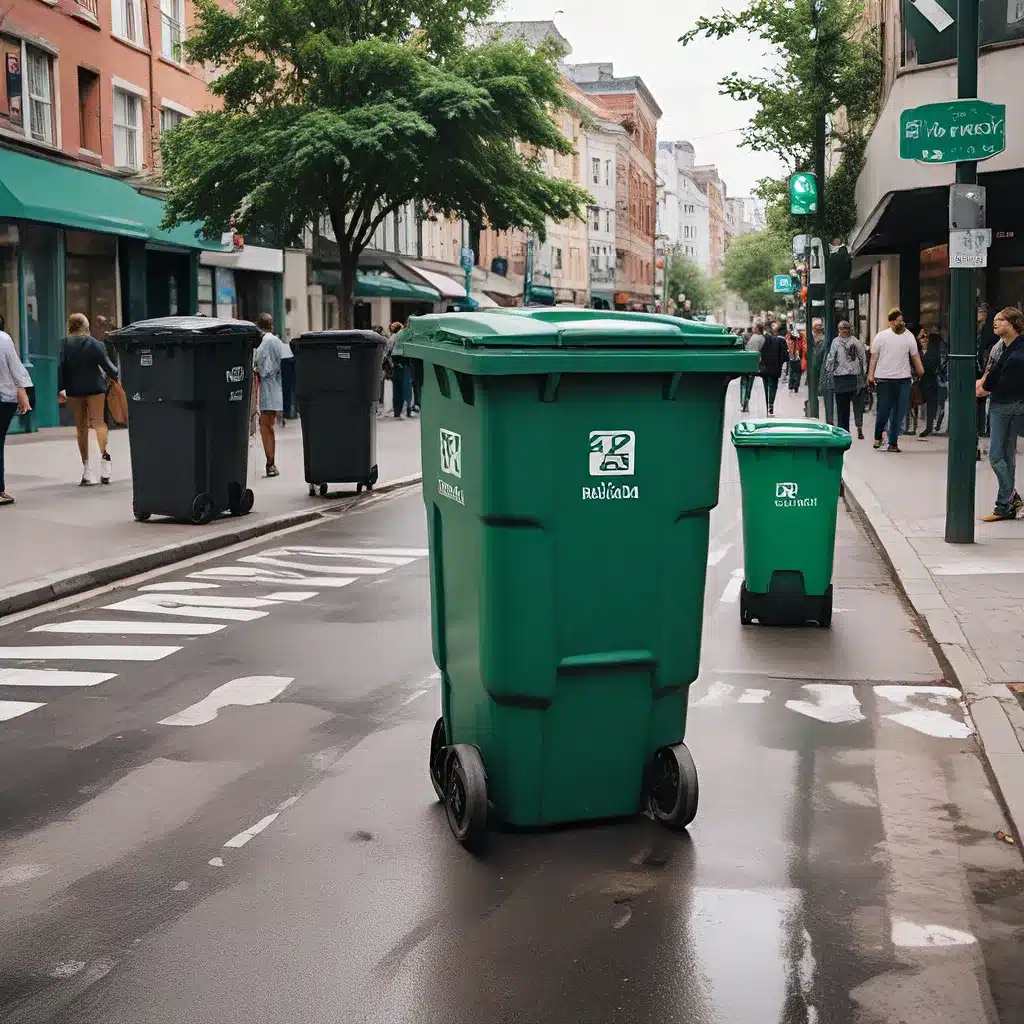
As the world grapples with the ever-growing challenge of municipal solid waste, innovative technological solutions are emerging to tackle this pressing issue. One such approach, championed by researchers at North Carolina State University, combines the power of sensor fusion and RFID technology to revolutionize smart city waste management and recycling.
Addressing the Waste Management Crisis
The staggering reality is that Americans generate more than 290 million tons of municipal solid waste each year, a figure that encompasses everything from packaging and clothing to bottles, food scraps, and batteries. While some of this waste is recycled, composted, or burned for energy, nearly 50% of it ends up in landfills, where it slowly decomposes and emits greenhouse gases that account for about 25% of today’s global warming.
This dire situation has prompted researchers, like Lokendra Pal, the EJ Woody Rice Professor in the Department of Forest Biomaterials at NC State, to collaborate with the National Renewable Energy Laboratory, IBM, and the Town of Cary to develop a smart waste management system that can revolutionize the collection, identification, and characterization of organic materials in non-recyclable waste.
Integrating Sensor Fusion and RFID
At the heart of this innovative system is the integration of smart sensors, visual cameras, and hyperspectral cameras with an automated waste sorting machine. As non-recyclable waste items move along a conveyor belt, the visual and hyperspectral cameras capture detailed images, while the sensors monitor and control the waste management process.
Hyperspectral cameras are a game-changer in this context, as they can visualize many more bands of light from across the electromagnetic spectrum compared to traditional digital cameras. This allows the system to capture chemical characteristics of the waste items that would otherwise be invisible, providing a more comprehensive understanding of their composition.
By combining this sensor fusion approach with RFID technology, the researchers aim to further enhance the system’s capabilities. RFID tags can be attached to the waste items, enabling real-time tracking and monitoring of the waste management process. This integration of sensors, cameras, and RFID creates a powerful ecosystem that can improve the process of characterizing and separating waste, ultimately reducing the amount of material ending up in landfills.
Unlocking the Potential of Non-Recyclable Waste
The ultimate goal of this smart waste management system is to convert non-recyclable waste into renewable products, energy, and fuel. Non-recyclable waste often contains organic materials such as oil, grease, and dirt, which can be challenging to recycle using traditional methods.
By analyzing the physical, chemical, thermal, and biological properties of these non-recyclable waste items, the researchers are able to determine their contaminants, energy density, and organic content. This information is then used to train and test machine learning models that can be integrated with the system’s cameras to enhance the recognition and classification of the waste.
The potential applications of this technology are vast, as the researchers explore the use of various processes and technologies to produce biofuels (such as bioethanol and aviation fuel) and bio-based products (such as biochar) from the non-recyclable waste stream. These sustainable solutions can be blended and used as fuel in the transportation industry, while the biochar can be employed in agriculture to enhance soil fertility and improve plant growth.
Empowering Smart Cities and the Circular Economy
The implications of this smart waste management system go beyond just waste management; they have the potential to transform the way cities approach sustainability and the circular economy. By recovering organic materials from municipal solid waste and converting them into valuable products, the system supports the development of sustainable solutions for waste valorization, optimizing resource recovery, minimizing waste generation, reducing emissions, and mitigating environmental impacts.
Moreover, the researchers plan to develop a web platform that will enable them to share datasets and other information with stakeholders, fostering collaboration and knowledge-sharing across municipalities and industries. This collaborative approach is crucial in driving the widespread adoption and implementation of these innovative waste management solutions.
Navigating Challenges and Opportunities
While the potential of this smart waste management system is undeniable, there are also challenges that need to be addressed. Ensuring the technical feasibility and environmental performance of the system at a pilot scale is a crucial next step, as the researchers work to evaluate its real-world applicability.
Additionally, the integration of sensor networks, RFID technology, and machine learning introduces potential security and privacy concerns that must be carefully managed. Addressing these issues, such as data encryption, access control, and regulatory compliance, will be essential in building trust and widespread acceptance of the technology.
Despite these challenges, the opportunities presented by this smart waste management system are truly exciting. By empowering businesses to utilize non-recyclable waste as a renewable carbon resource, the system supports the journey towards a low-carbon economy and contributes to the development of a more sustainable and circular future.
As the world continues to grapple with the ever-growing waste management crisis, the innovative solutions presented in this article offer a glimmer of hope. By harnessing the power of sensor fusion, RFID technology, and machine learning, researchers are paving the way for a future where waste is no longer a problem, but rather a valuable resource for a more sustainable and prosperous world.